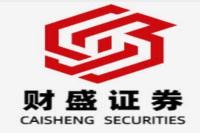China's Capital Markets: A Deep Dive into the Wu-Loh Meeting and its Global Implications
Meta Description: Analyzing the October 2024 meeting between China's CSRC chairman Wu Qing and SGX CEO Loh Boon Chye, exploring its impact on Asian and global exchange cooperation, investment strategies, and the future of China's financial markets. Keywords: China, CSRC, SGX, Wu Qing, Loh Boon Chye, Asian markets, global exchange cooperation, financial markets, investment strategy, capital markets.
Imagine this: two titans of the global financial world, locked in a conversation that could reshape the future of Asian – and indeed, global – capital markets. On October 23rd, 2024, a seemingly simple meeting took place in Beijing. But the implications of the tête-à-tête between China's Securities Regulatory Commission (CSRC) Chairman, Wu Qing, and the CEO of the Singapore Exchange (SGX), Loh Boon Chye, ripple far beyond the confines of that single room. This wasn't just another diplomatic exchange; it was a strategic chess move, a subtle shift in the global financial landscape, and a fascinating case study in international cooperation. The discussions, focusing on bolstering collaboration between Asian and international exchanges, are pregnant with potential. Think about the interwoven nature of global finance: the impact of this meeting could affect everything from your retirement portfolio to the price of that morning latte. We'll unpack the nuances of this high-stakes encounter, examining its potential consequences, analyzing its significance within the broader context of China's economic ambitions, and exploring what it all means for investors worldwide. Buckle up, because this is one ride you won't want to miss! This isn't your grandpappy's financial news; this is a deep dive into the heart of the matter, pulling back the curtain on the intricate world of international finance and offering a fresh perspective on the future of global investment. We'll not only explore the immediate outcomes but also delve into the potential long-term ramifications, providing you with actionable insights and a clearer understanding of the forces shaping the world's financial markets. So, let's get started!
China's CSRC and the Growing Importance of International Collaboration
The meeting between Chairman Wu and CEO Loh underscores a significant shift in China's approach to international financial cooperation. For years, China's capital markets operated with a degree of relative isolation, prioritizing domestic growth and stability. However, the increasing interconnectedness of the global economy has forced a reassessment of this strategy. China’s rise as a global economic powerhouse necessitates a more active role in shaping international financial norms and regulations. This meeting represents a proactive step in that direction. The CSRC, under Chairman Wu's leadership, seems determined to foster stronger ties with leading global exchanges, leveraging these partnerships to enhance market efficiency, attract foreign investment, and improve the overall competitiveness of Chinese financial institutions. This isn't just about opening doors; it's about actively participating in the global financial conversation, shaping its direction, and benefiting from the expertise and experience of established international players.
This strategic pivot is driven by several key factors:
-
Increased Capital Inflows: China needs foreign investment to fuel its continued economic growth and development. Strengthening ties with reputable international exchanges enhances investor confidence, making it easier to attract capital from global markets.
-
Technological Advancement: Collaborating with advanced exchanges like the SGX allows China to learn from best practices in areas such as trading technology, risk management, and market surveillance.
-
Regulatory Harmonization: Increased cooperation can lead to greater regulatory alignment, reducing barriers to cross-border investment and promoting greater integration of global capital markets.
-
Enhancement of Renminbi (RMB) Internationalization: Partnerships with international exchanges can help increase the use of RMB in cross-border transactions, furthering China’s goal of making the RMB a major global currency.
The collaboration isn't simply a one-way street. International exchanges also stand to gain significantly from engaging with China's rapidly growing and increasingly sophisticated capital markets. Access to the vast Chinese market represents an enormous opportunity for growth and diversification.
The Singapore Exchange (SGX): A Strategic Partner for China
The choice of the Singapore Exchange (SGX) as a key partner is not accidental. Singapore's reputation as a stable, transparent, and efficiently regulated financial center makes it an ideal partner for China’s ambitions. SGX possesses a wealth of experience in international collaborations and has a well-established track record of innovation in financial technology. This makes it a valuable partner in helping China modernize its capital markets and improve its competitiveness on the global stage. The partnership signifies a recognition of mutual benefit, highlighting the synergistic potential of combining China's market size with Singapore's regulatory expertise and technological prowess. This collaboration isn't just a short-term strategy; it's a long-term investment in the future of both economies, building a foundation for sustainable and mutually beneficial growth. The SGX, in turn, benefits from access to China’s vast market, diversifying its revenue streams and solidifying its position as a leading Asian financial hub.
Potential Areas of Collaboration:
The meeting likely covered a range of potential collaboration areas, including:
-
Cross-listing of companies: Facilitating the listing of Chinese companies on the SGX and vice versa.
-
Development of new financial products: Jointly developing innovative financial products tailored to the needs of both markets.
-
Information sharing and regulatory cooperation: Enhancing regulatory cooperation to improve market surveillance and reduce risks.
-
Capacity building: Sharing knowledge and expertise in areas such as market infrastructure, technology, and risk management.
Implications for Investors and the Global Economy
This meeting isn't just a behind-the-scenes diplomatic maneuver; it has significant implications for investors and the global economy. The increased integration of Chinese and international capital markets offers several potential benefits:
-
Diversification Opportunities: Investors gain access to a wider range of investment opportunities, potentially leading to more diversified portfolios and reduced risk.
-
Increased Market Liquidity: Greater integration increases market liquidity, making it easier to buy and sell assets.
-
Improved Price Discovery: A more integrated market promotes more efficient price discovery, leading to fairer and more accurate valuations.
-
Enhanced Market Efficiency: Collaboration on technology and best practices can lead to improved market efficiency and lower transaction costs.
However, the process isn't without its challenges. Navigating differing regulatory frameworks, addressing cybersecurity concerns, and managing potential risks associated with increased market integration require careful consideration and collaborative efforts. The success of these initiatives hinges on transparency, effective communication, and a shared commitment to maintaining market integrity and stability. This meeting, therefore, represents a crucial first step in a much larger and more complex process.
Frequently Asked Questions (FAQs)
Q1: What are the short-term implications of this meeting?
A1: In the short term, we can expect increased dialogue and exploratory discussions on specific areas of collaboration. We might see preliminary agreements on information sharing or pilot programs for cross-listing initiatives.
Q2: What are the long-term implications?
A2: Long-term, this meeting could lead to significant structural changes in Asian and global capital markets. This includes increased cross-border investment flows, the development of new financial products, and greater regulatory harmonization.
Q3: What are the risks involved in this increased cooperation?
A3: Risks include regulatory differences, cybersecurity vulnerabilities, and potential market instability arising from increased integration.
Q4: How will this affect individual investors?
A4: Individual investors could benefit from increased investment opportunities, potentially leading to higher returns and more diversified portfolios. However, investors should also be aware of potential risks.
Q5: Will this lead to more Chinese companies listing on international exchanges?
A5: It's highly likely. The meeting is a significant step towards making it easier for Chinese companies to list overseas, boosting their international visibility and access to capital.
Q6: How does this fit into China’s broader economic strategy?
A6: This aligns perfectly with China’s goals of fostering higher-quality economic growth, enhancing its international financial influence, and promoting the internationalization of the RMB.
Conclusion:
The meeting between Chairman Wu and CEO Loh is a landmark event, signifying a crucial turning point in China's engagement with the global financial community. While the immediate outcomes might not be immediately visible, the long-term implications are profound. The success of this collaboration will depend on the ability of both sides to navigate the complexities of regulatory frameworks, technological advancements, and the ever-evolving landscape of global finance. It's a dynamic situation, and we'll be watching closely to see how this partnership evolves and shapes the future of global capital markets. One thing is certain: this is a story worth following. The implications for investors, businesses, and the global economy are substantial, making this meeting a pivotal moment in the ongoing narrative of globalization and financial integration. The future of capital markets may well depend on the success of this collaboration.



